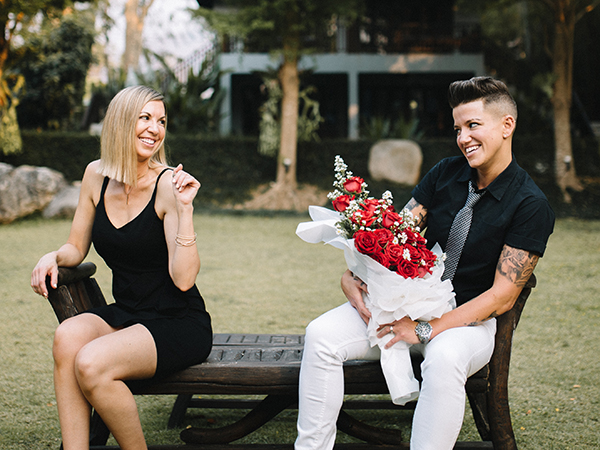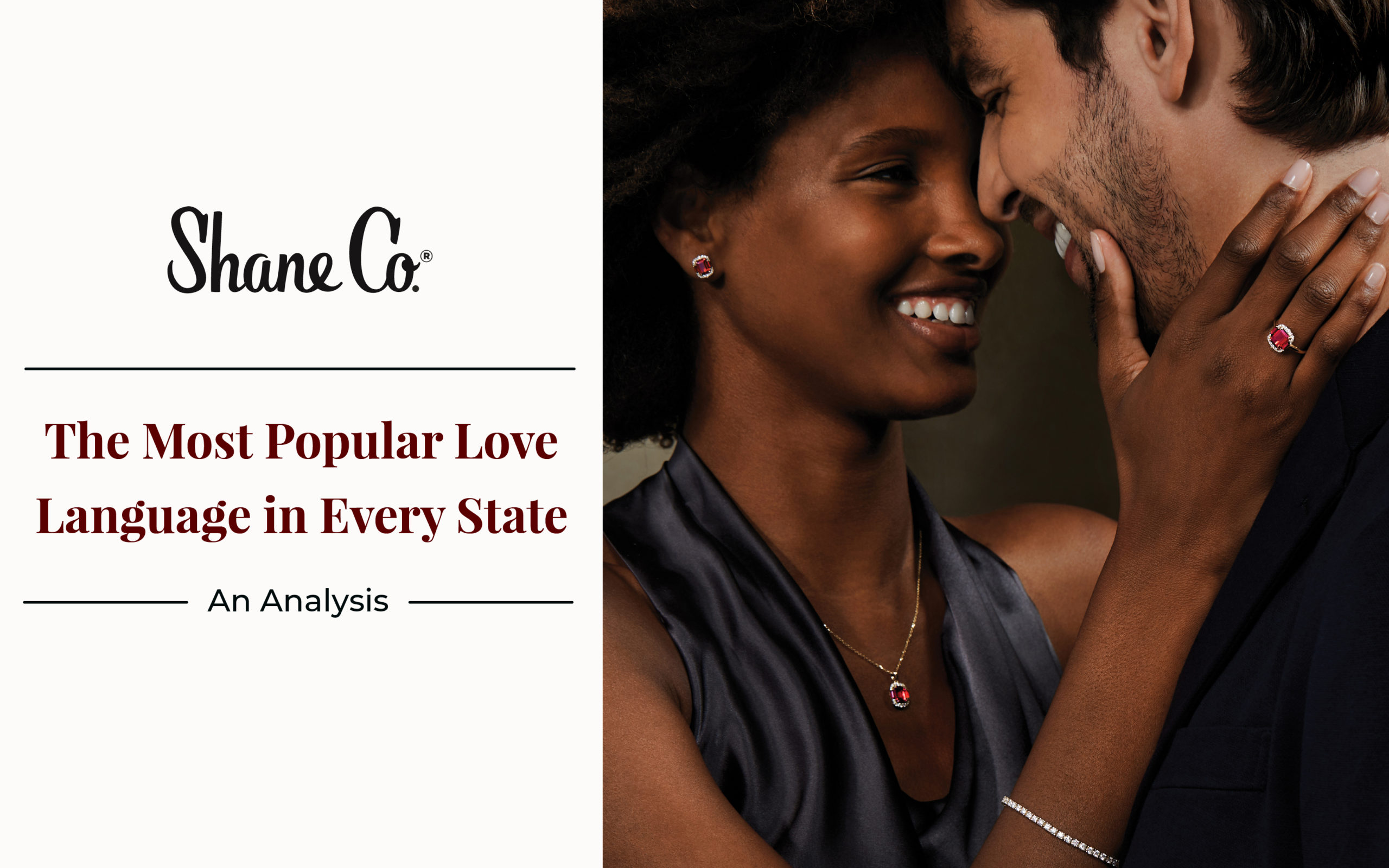
You and your partner are very much in love and you’ve been thinking — maybe even dropping hints — about taking the next step. But how can you feel confident you’re making the right decision, and what indicators should you look for to ensure you’re really ready to get engaged? We’ve read up on interviews with psychologists and relationship experts as well as in-depth studies to figure out how to know you’re ready to pop the question (or say yes).
1. You’ve talked about your finances
It may not be romantic, but knowing where you and your partner stand when it comes to making financial decisions can make a big difference in the health of your future marriage. A poll conducted in 2018 marked money worries near the top of the list for reasons why couples split up, citing arguments over finances as the final breaking point. While money-related stress is hard to avoid completely, making sure you’re on the same page as your partner can make a lot of difference in avoiding financial arguments. What do they consider a “big” purchase? Are they saving up for a car, home or business? How will you divide financial obligations, and do you plan to have your bank accounts separate, joint or both?
Before deciding if you’re ready to get engaged, you should be comfortable with your partner’s answers to these questions and more. Remember to be honest with one another about not only your current financial state, but also your goals for the future and what you value — for example, if you love fashion, while you may think buying a $200 coat is a worthwhile purchase, your partner may not understand why it’s worth that much. Be patient, and avoid getting upset about the bigger things by making money a regular part of your conversation.
2. You know how to fight fair

Every couple fights — but do you and your partner know how to fight constructively? The Early Years of Marriage Study looked at 373 couples over a 16-year period, starting at the very first years of their marriages to discover why some couples stuck together while others broke apart. As it turns out, couples in which both parties used constructive methods of fighting (staying calm, focusing on communication, avoiding withdrawing or giving “the silent treatment” as a way of dealing with conflict) had lower divorce rates than couples who didn’t. It really comes down to this: There’s no such thing as “winning” an argument with your spouse. Having respect for your partner and remembering that even when you fight, you’re still on the same team, is incredibly important when deciding to take the next step in your relationship.
3. You have realistic expectations about your relationship skills
Understanding your partner’s and your strengths and weaknesses is a huge part of feeling confident that you will be able to build a life together. One study in the Journal of Personality and Social Psychology found that marital satisfaction is highest in couples whose expectations matched their relationship skills — even if their skills rated higher than their expectations. Having expectations that are too high can lead to disappointment, while having low expectations can mean you never actually get to practice and appreciate the relationship skills you are best at. The idea that you know what to expect when it comes to marriage goes along with knowing your partner. Make sure you’re well aware of what areas of domestic life you both excel at, and how this will work realistically within your marriage before you decide if you are ready to get engaged.
4. You say thank you
There will be moments in your marriage, and even in your engagement, where you may not feel like your relationship is at its best. Having a partner that you know respects and appreciates you is very important when it comes to maintaining a happy life together. Research done by the University of Georgia shows that expressions of gratitude are one of the most consistent predictors of marital quality. While all relationships will face difficulty, “gratitude can help promote positive marital outcomes,” says the study’s lead author, Allen Barton. Be aware of how often you and your partner say thank you, and ensure that gratitude is flowing freely when figuring out if it’s time to buy that ring.
5. They’re your best friend

When you receive news, good or bad, is your partner the first person you wish to share it with? Marriage experts continually stress the importance of enjoying the time you spend with your spouse and considering them not just a romantic partner, but also a friend. “The foundation of a good marriage is a good friendship and sharing things with each other is a big part of that,” licensed marriage and family therapist Nicole Richardson states in an article for Elite Daily. So before you consider tying the knot, think about your relationship with your significant other. If you “look forward to waking up with your partner and seeing them at the end of day,” relationship therapist Dr. Gary Brown says, then you’re probably on the fast track to getting engaged.
6. You want it for all the right reasons
There are plenty of reasons to get engaged that don’t involve the love you share with your partner. Feeling pressure from friends and family, being together in order to give off a good “image,” seeing those around you frequently getting married, or trying to deal with problems within yourself by tying the knot can all be enticing reasons to consider marriage — but none of them is the right one. Having a genuine admiration and respect for your spouse and wanting to make your relationship more permanent should be the underlying reasons for considering marriage, even if you’re feeling left out by the plethora of engagement announcements sounding off in your periphery.
7. You speak the same “language”

One of the most popular books about relationships, discussed by psychologists and skeptics alike, is Dr. Gary Chapman’s “The Five Love Languages.” In it, he lays out a model for how we give and receive love, saying that we all have a primary love language that reflects within our relationships. These languages include gift giving, quality time, physical touch, words of affirmation, and acts of service. While it’s not necessary to have the same “language” as your partner, you should already be paying attention to what language they use to give love, as this is generally how they like to receive it, too. You and your spouse should be aware of what matters most to one another — maybe you need to hear the words “I love you” often, while they need a lot of intimacy and touch to feel wanted in the relationship. Knowing how you both give and receive love will keep you from feeling underappreciated as you move forward in your journey to engagement.
8. They make you a better person
Getting engaged means you’re pledging to spend forever with your one and only. So one of the most important questions you can ask yourself before putting on that ring is “Does my partner bring out the best in me?” Life coach Kali Rogers stated in an interview with Bustle that “it’s really not about them. It’s all about what kind of person you are, become, and feel like when you’re in their presence. Love should bring forth confidence and security.” If you feel like you are truly embracing the “real you” when you’re with your partner, then it may be time to get engaged.




Discuss realities of daily living incl. Tasks like laundry, house clng, who gets up w/ baby, garbage emptying, toilet duty, etc.etc.Church? Bedtimes like what if one stays up? Who cooks, who groc. shops? Mundane? Not after honeymoon! Activities commiserate?? Who gets to do theirs first? Discuss the money!! Who gets to buy what first? What activities done as a couple what ok to do individually? What traditions are decided as important as a couple what ok to one? Respect, kind requests, more respect of their needs, their differences, all you chose to marry them for and inspite of. Don’t minimize importance of all these things. And again RESPECT.
I couldn’t agree more with you more Ginger. It really comes down to communication and trust. Being in a marriage takes lots of work and of course it’s not easy. But just like you had said, RESPECT one another. If you truly have unconditional love for each other. It will last.